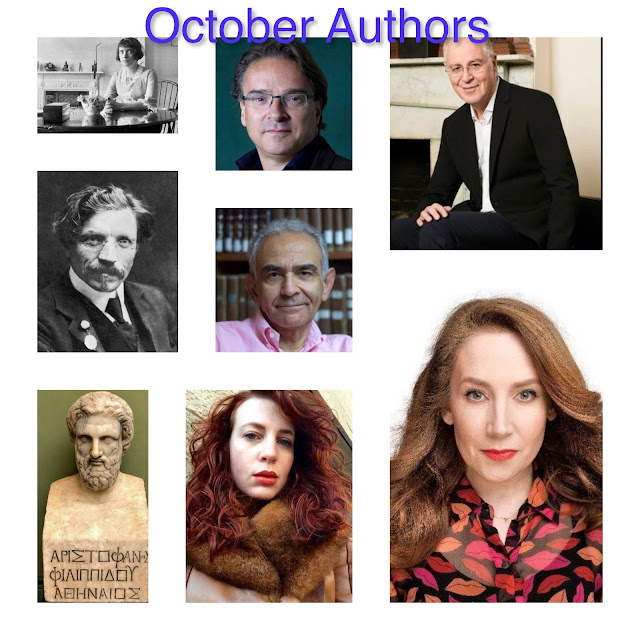The Reading Life Review - October 2022
The Reading Life is a multicultural
book blog, committed to Literary Globalism .
Our posts have been read over 6.8 milion times with readers ranging from scholars from The Vatican Library,MacArthur Genius Grant Winners, publishing industry professionals to teenage book lovers.
Short Stories, Irish literature, Classics, Modern Fiction, Contemporary Literary Fiction, The Japanese Novel, Post Colonial Asian Fiction, The Legacy of the Austro-Hungarian Empire and quality Historical Novels are Among our Interests. Narrative non-fiction also is of importance.
Column One
- Katherine Mansfield - New Zealand
- Sholem Aleichem - Russian Empire
- Aristophenes - Greece
Column Two
- Orlando Figes - UK -author of several books on Russian History - first appearance on The Reading Life
- Joseph Sassoon - Iraq - author of The Sassoons: The Great Global Merchants and The Making of an Empire- First Appearance on The Reading Life
- Arkady Martine - USA - AnnaLinden Weller, better known under her pen name Arkady Martine, is an American historian, city planner, and author of science fiction literature. Her first novels A Memory Called Empire and A Desolation Called Peace, which form the Teixcalaan series, each won the Hugo Award for Best Novel. From The author’s website- I loved her Two Hugo Award Winning Novels
Column Three
- Ron Chernow- USA - Ronald Chernow is an American writer, journalist and biographer. He has written bestselling historical non-fiction biographies. He won the 2011 Pulitzer Prize for Biography and the 2011 American History Book Prize for his 2010 book Washington: A Life.
- Viv Groskup - UK - first appearance on RL- Viv Groskop is a writer, comedian, TV and radio presenter and is the host of the chart-topping podcasts How to Own the Room on women, power and performance; and We Can Rebuild Her, a series of powerful interviews on reinvention, change and resilience, specially designed for the post-pandemic era. She is the author of five books including the best-selling How to Own the Room: Women and the Art of Brilliant Speaking (Transworld). In March 2020 Viv launched Lift as You Climb: Women and the Art of Ambition (Transworld), a companion volume to How to Own the Room. And in June Au Revoir, Tristesse: Lessons in Happiness from French Literature (Abrams) came out, a follow-up to The Anna Karenina Fix: Life Lessons from Russian Literature From the author’s website
I have her book on French literature on my Amazon wish list.
Blog Stats
Pages views to date
6,810,246
Posts online 4,122
Home countries of visitors in last thirty days
1. USA
2. Phillippines
3 France
4. India
5. Isreal
6. Canada
7. Sweden
8. Germany
9. UK
10. Russia
The five most viewed posts were about short stories by authors
From The PHILIPPINES













